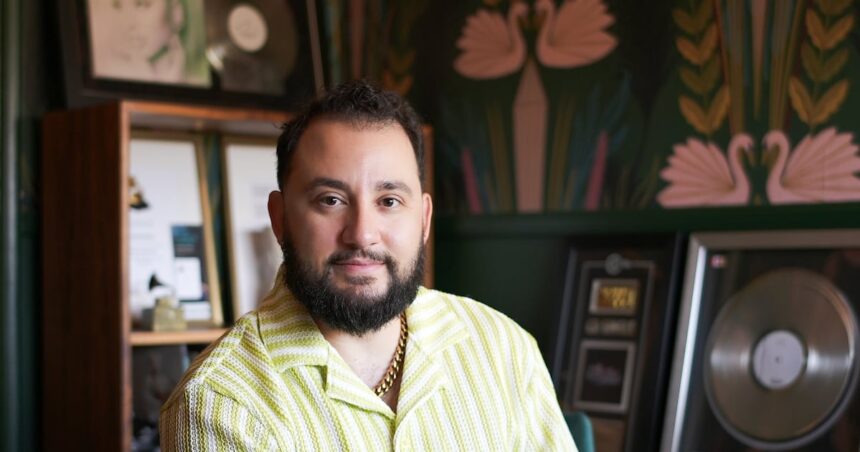In a music industry that often feels dominated by corporate giants and established power structures, the launch of Errant Records marks a refreshing departure from business as usual. Canada’s newest independent label, proudly transgender-owned and LGBTQ-operated, officially opened its doors this week with a clear mission: to amplify voices that have historically been pushed to the margins.
“The music industry has a representation problem,” explains founder Mila Chen, who established Errant Records after fifteen years navigating the often-challenging terrain of the music business. “As a trans woman, I’ve witnessed firsthand how talent gets overlooked when it doesn’t fit neatly into marketable categories. We’re here to change that narrative.”
What makes Errant’s emergence particularly noteworthy isn’t just its ownership structure, but its timing. The label launches amid a cultural moment where transgender rights have become increasingly politicized across North America. Rather than shying away from this reality, Chen and her team seem determined to face it head-on, positioning authentic artistic expression as a form of resistance.
The Canadian music landscape has seen impressive growth in diversity over recent years, with organizations like the Polaris Music Prize consistently recognizing artists from underrepresented communities. Yet structural barriers remain firmly in place. A 2023 industry report revealed that fewer than 3% of executive positions at major Canadian labels are held by openly LGBTQ individuals, with transgender representation nearly nonexistent at decision-making levels.
“Representation matters not just on stage but behind the scenes,” says music industry analyst Jordan Levinson. “When the people making decisions about which artists get signed and promoted reflect diverse experiences, the entire ecosystem benefits. Errant Records isn’t just filling a gap – it’s potentially creating a blueprint for the future of the industry.”
The label’s initial roster features a deliberately eclectic mix of artists spanning genres from experimental electronica to folk-rock. What unites them isn’t a particular sound but rather a commitment to authentic storytelling. Montreal-based singer-songwriter Ellis Ray, one of Errant’s first signings, describes finding a home where their identity isn’t treated as a marketing angle: “For once, I don’t have to explain or justify my existence before we can talk about the music.”
Errant’s business model also challenges industry norms. The label has adopted a profit-sharing structure that gives artists significantly higher royalty percentages than industry standards, prioritizing sustainability over explosive growth. Additionally, every contract includes provisions for mental health support and harassment protection – acknowledgments of the unique challenges many LGBTQ artists face.
The launch hasn’t been without challenges. Chen acknowledges that securing initial funding required persistence, with several potential investors expressing concerns about the label’s “niche appeal.” Such responses only reinforced her conviction: “When people call something ‘niche,’ they’re often just revealing their own limited perspective. Queer and trans people listen to and create every genre of music imaginable. There’s nothing niche about our humanity.”
Industry response has been cautiously optimistic. Several major distributors have already partnered with Errant, suggesting recognition of both the artistic and commercial potential of its approach. As streaming platforms increasingly promote diversity initiatives, labels specifically designed to discover and nurture talent from underrepresented communities may find themselves with strategic advantages.
What remains to be seen is whether Errant Records can achieve the delicate balance between maintaining its core values and reaching broader audiences. History is filled with independent labels that began with revolutionary intentions only to be gradually absorbed into the systems they initially challenged.
Chen seems aware of this tension: “Success for us doesn’t look like becoming another corporate entity. It looks like creating sustainable careers for artists who deserve to be heard, changing industry standards along the way, and maybe – hopefully – making it a little easier for the next person to do what we’re doing.”
In a cultural landscape where authentic representation matters more than ever, Errant Records’ emergence feels like more than just another business launch. It represents a declaration that transgender and LGBTQ Canadians aren’t just claiming space within existing structures – they’re building new ones designed to better serve both artists and audiences hungry for genuine connection.
As the label’s first releases begin to reach listeners in the coming months, the Canadian music scene may discover that what some dismissed as “niche” was actually the future arriving right on time.
For more perspectives on cultural shifts in Canada, visit CO24 Culture or explore emerging social patterns at CO24 Trends.










